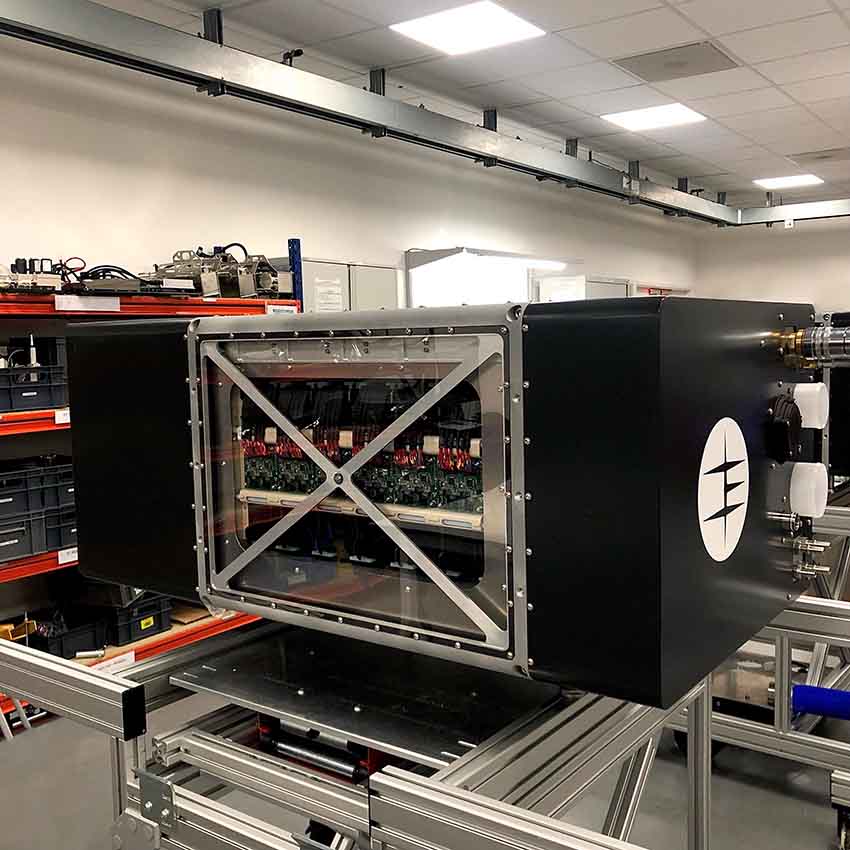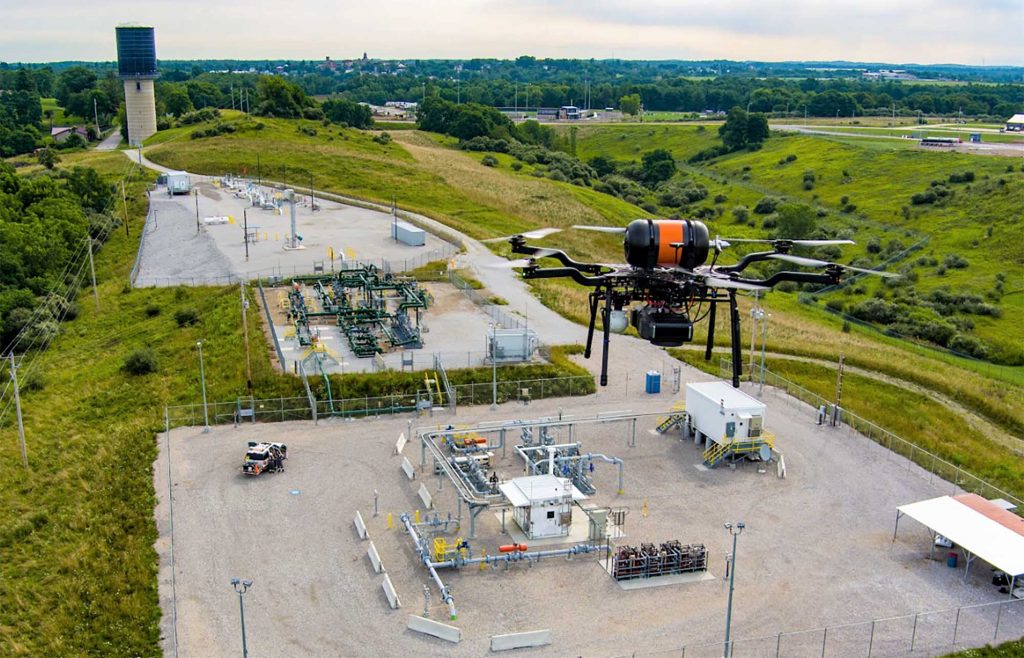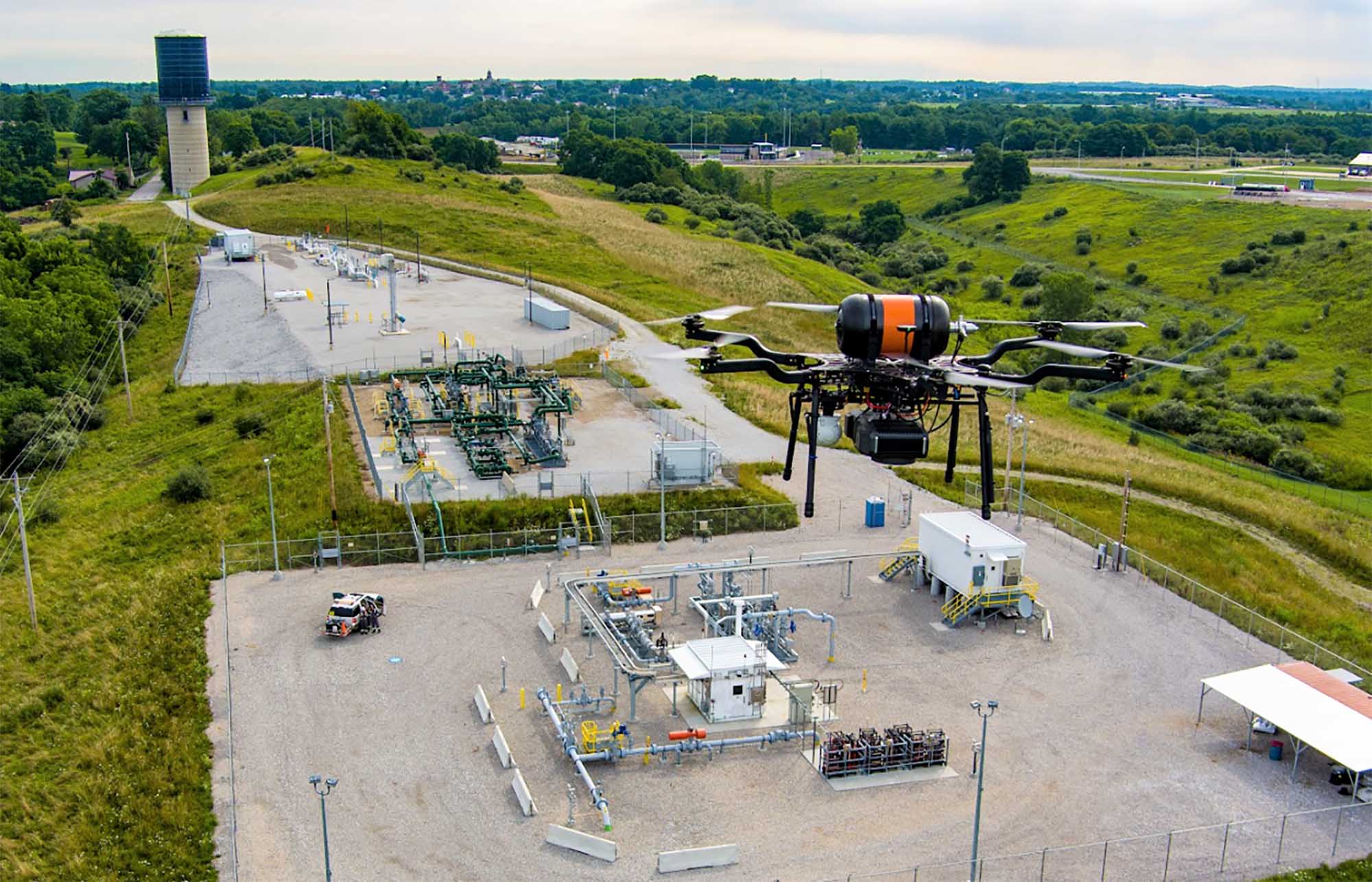Intelligent Energy (IE) is a world leading hydrogen fuel cell engineering business built on 30 years’ experience in the development of zero-emission fuel cells using Proton Exchange Membrane (PEM) technology. It is focused on the development, manufacture, and commercialization of its lightweight, highly efficient fuel cell modules which are based on its large portfolio of patents. IE is headquartered in the UK but operates worldwide with the support of additional operations and distribution partners in the US, Japan, South Korea, and China.
Easy Engineering: What’s the news about new products?
Intelligent Energy: We are continuing to develop our technology to provide better and more advanced products for our customers, and look forward to promoting these further in the new year. Our newest products include our second-generation IE-SOARTM 800W fuel cell module for fixed wing and VTOL drone / UAV applications, and our IE-DRIVETM module for automotive applications including buses, trucks and passenger cars. Utilizing our patented evaporatively cooled (EC) technology, our IE-DRIVE fuel cell modules deliver compact, modular systems with fewer components, improved reliability, and reduced system costs.
Our newest fuel cell module for UAVs is optimized for VTOL and fixed wing applications. Using our lightweight fuel cell technology and a modular structure, our 800W module offers greater flexibility to the end user and extends time in the air.
The latest generation of our 1kW IE-LIFTTM fuel cell module is now also being taken out into the market by a number of our customers in a range of applications, from welfare cabins, lighting towers, and cherry pickers, through to forklift trucks and man-portable generators.
E.E: What are the ranges of products?
Intelligent Energy: Our fuel cell modules fall into four product families, across two slightly different core technologies (both based on PEM). IE-SOAR™ and IE-LIFT™ are our air-cooled ranges with a very simple balance of plant for drones and low power (up to 32kW) motive, portable and stationary applications. IE-DRIVE™ (and IE-FLIGHT™ – it’s lightweight version in development) are high-power evaporatively cooled units for automotive and large-scale stationary power requirements.

Our fuel cell modules are integrated into a vast range of systems that provide power from sub-1kW to over 100kW for applications including automotive, aerospace, power generation, telecoms, marine, rail, and materials handling equipment.
E.E: At what stage is the market where you are currently active?
Intelligent Energy: Although fuel cells have been around for decades, the market is still fairly new to a lot of key industries that we are targeting, and different sectors are at different stages of adoption. Car manufacturers are starting to convert to fuel cell power, construction companies are seeking clean, reliable alternatives to diesel and the aerospace sector is searching for lightweight, zero-emission power. The Telecoms sector is also realizing the benefits that hydrogen fuel cells can bring in self-sufficient, off-grid power systems in remote areas.
We are targeting these industries with our competitive range of products and as demand for hydrogen increases, policies encourage its uptake and net zero targets approach us, we are seeing greater success.
E.E: What can you tell us about market trends?
Intelligent Energy: With net zero in the forefront of many companies’ minds, we have seen a huge transition in corporate mindsets and strategies regarding their energy sources and how they are going to futureproof their businesses. With companies pushing the green agenda and the government publicly supporting hydrogen more than ever, we have seen a greater level of interest. This has been compounded by the sharp rise in energy prices – hydrogen has the potential to reduce reliance on imported gas and electricity to increase sustainability and energy security, driving interest in fuel cells a key technology to enable net-zero production of electricity on demand.
With the public also becoming more interested and educated in the hydrogen economy and the possibilities within for automotive, aviation, and other industries, hydrogen is increasingly being perceived as a viable option for the here and now, rather than a “future technology”.

E.E: What estimations do you have for the rest of 2022?
Intelligent Energy: We will deliver the first of our IE-DRIVE™ HD and our IE-DRIVE™ P100 fuel cell systems to customers by the end of the year, which is a great achievement for all the team at IE who have been working incredibly hard for the past few years to bring this, our latest generation of automotive fuel cell, to market. In 2023, we’ll continue our expansion into buses, for example with Alexander Dennis who are one of our partners in the ESTHER project, and into HGVs in China with Tri-Ring. We will also continue to supply fuel cells to BMW for hydrogen powered AGVs and to Shell for pipeline inspection drones. We expect to see more and more interest from these sectors (materials handling and drones) as we move from 2022 into 2023 and beyond as businesses drive towards greater operational efficiency and net-zero targets.
We’re continuing to explore new markets for our fuel cells, where there is a demand for clean, reliable power. We are actively targeting ports and airports to help decarbonize dockside and ground handling operations and are involved in some fantastic conversations around that.

